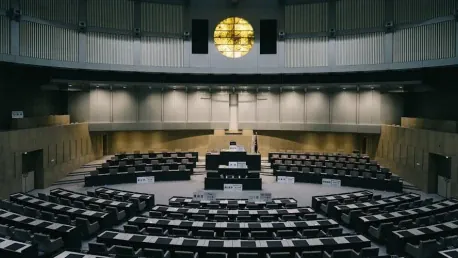On October 24, 2024, the Cedar Park City Council made a significant decision to address the transportation needs of its residents by voting unanimously to explore new public transit options through issuing requests for proposals (RFPs) focused on two microtransit models. This move seeks to introduce city-subsidized transportation services aimed at bridging existing gaps in the largely car-centric environment, thereby providing on-demand rides to the community. Supported by a 4-0 vote, with council members Mel Kirkland and Bobbi Hutchinson abstaining, this initiative represents a substantial step towards enhancing mobility for those who lack other means of transportation.
Deliberation on Microtransit Models
Transportation Network Company (TNC) Models
Council members evaluated three distinct microtransit models, two of which involve Transportation Network Companies (TNC) like Lyft and Uber. These TNC models envisage providing on-demand service with a subsidy. The first model opens up this service universally to all residents of Cedar Park, with users paying an initial fee and covering any cost exceeding a $10 subsidy. This model aims to make transportation available to everyone in the city, enhancing overall mobility and accessibility.
The second TNC model focuses specifically on marginalized groups, including residents over 65, disabled individuals, and those without a vehicle, incorporating a similar financial structure with an added requirement for accessible vehicles. This targeted approach seeks to prioritize the transportation needs of the most vulnerable sections of the community. By ensuring that this service is accessible to these groups, Cedar Park aims to create a more inclusive public transit system. Both TNC models offer viable options for improving public transit in the city through leveraging partnerships with established ride-share companies, potentially at a relatively lower cost due to the existing infrastructure of these companies.
Turnkey Service Model
Conversely, the turnkey service model proposes hiring a contractor to manage all aspects of the transit service, offering a comprehensive solution albeit at possibly higher costs. This model would potentially be confined to a smaller service area due to budget constraints. However, it assures a more integrated solution where the contractor handles everything from dispatching vehicles to customer service and maintenance, ensuring a smoother operation. This approach could lead to an enhanced user experience, with city funding supplementing user fares to make rides affordable.
The turnkey model’s comprehensive nature makes it an attractive option despite its potential higher costs. It ensures a more controlled and consistent service, enabling the city to maintain high standards and accountability. Such an arrangement could better serve the specific needs of Cedar Park’s residents, offering a reliable and managed solution to public transportation. However, financial prudence is necessary to keep the system sustainable and within budget constraints.
Moving Forward with TNC Proposals
Aiming to Serve the Underserved
Mayor Jim Penniman-Morin highlighted the primary goal of enhancing mobility for those without other transport options, particularly senior citizens and individuals with disabilities. This sentiment underscores the broader aim of the council to address the underserved segments of the population within Cedar Park’s transport landscape. The decision to seek RFPs for the first and second TNC scenarios illustrates the council’s commitment to deploying targeted solutions for these groups, ensuring inclusive access to transportation services.
The council’s unanimous vote to explore TNC proposals represents a strategic move to ensure that public transit in Cedar Park evolves to meet the needs of its most vulnerable residents. By focusing on solutions that provide on-demand rides and cater specifically to those who lack other transportation options, Cedar Park is poised to enhance the quality of life for many of its residents. This initiative will not only address immediate mobility issues but also pave the way for a more accessible and equitable transportation network in the city.
Enhancing Public Transit Infrastructure
On October 24, 2024, the Cedar Park City Council took a crucial step to address the transportation needs of its residents by voting unanimously to explore new public transit options. They decided to issue requests for proposals (RFPs) focused on two different microtransit models. The goal of this initiative is to introduce city-subsidized transportation services aimed at filling the gaps in the city’s largely car-dependent infrastructure. By providing on-demand rides to the community, the council hopes to significantly improve mobility for those who do not have access to other means of transportation. The decision was supported by a 4-0 vote, with council members Mel Kirkland and Bobbi Hutchinson abstaining. This initiative represents a substantial effort to enhance the livelihood of Cedar Park residents, especially for those who find it challenging to travel. The exploration of microtransit options underlines the city’s commitment to making transportation more accessible and equitable for all its citizens.









